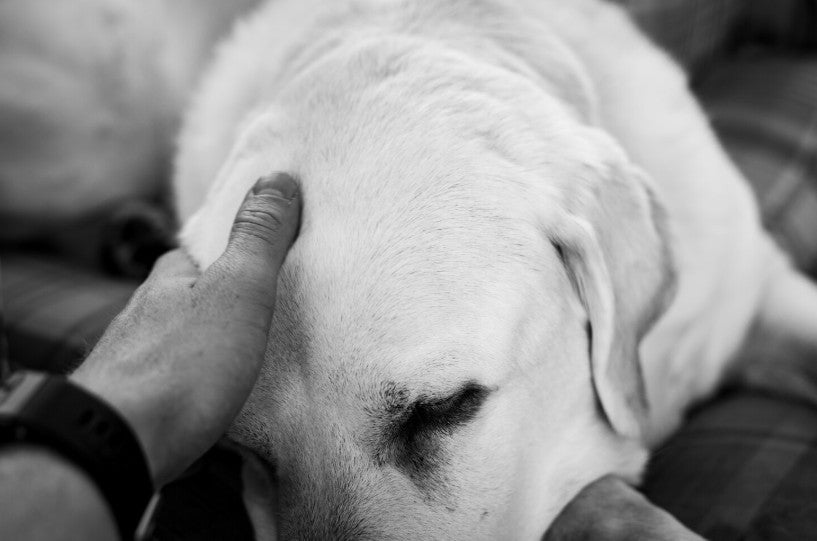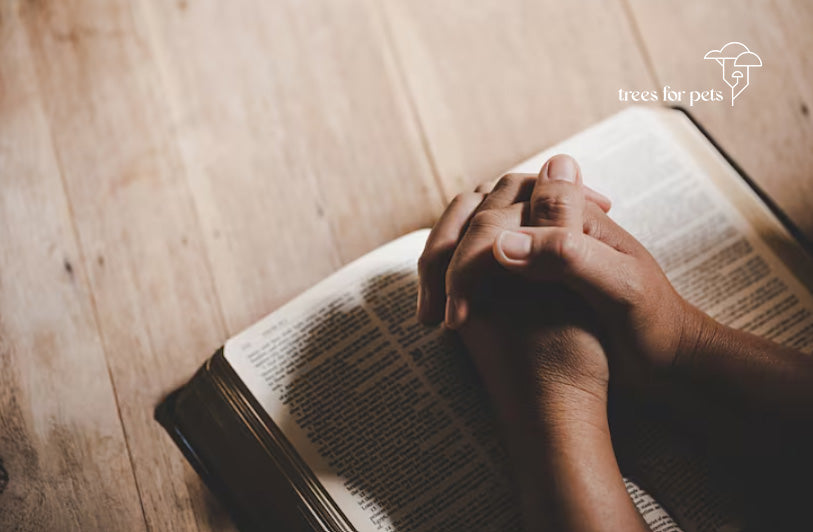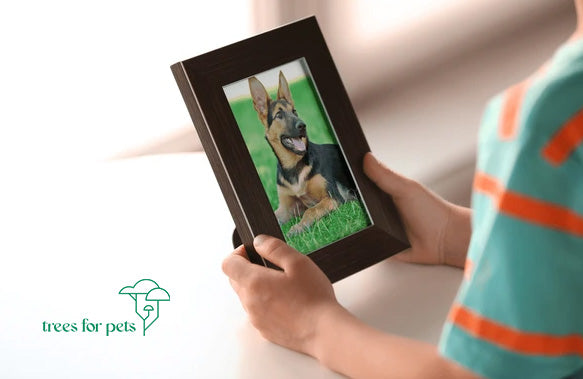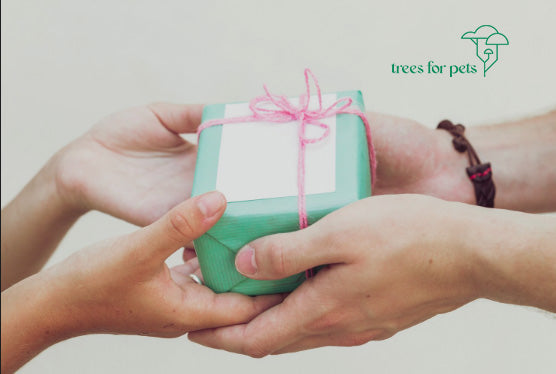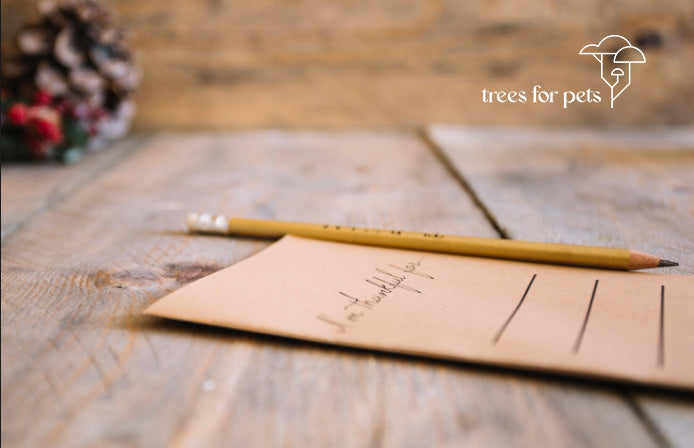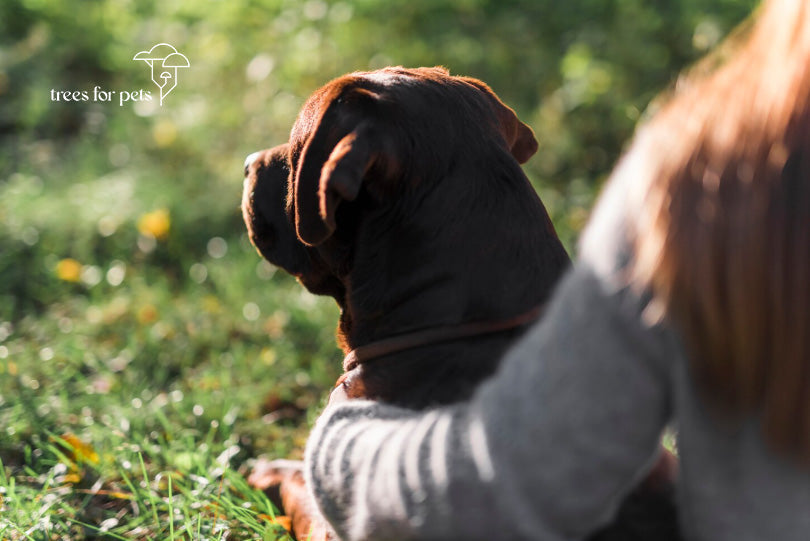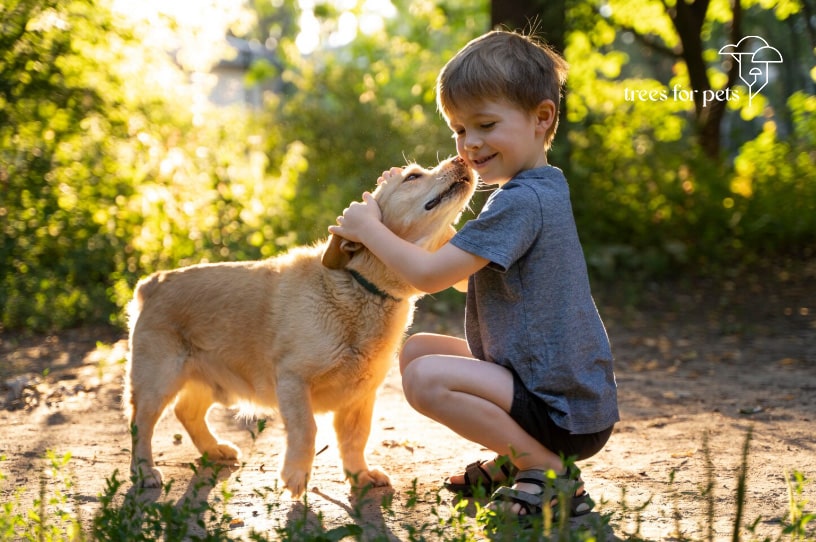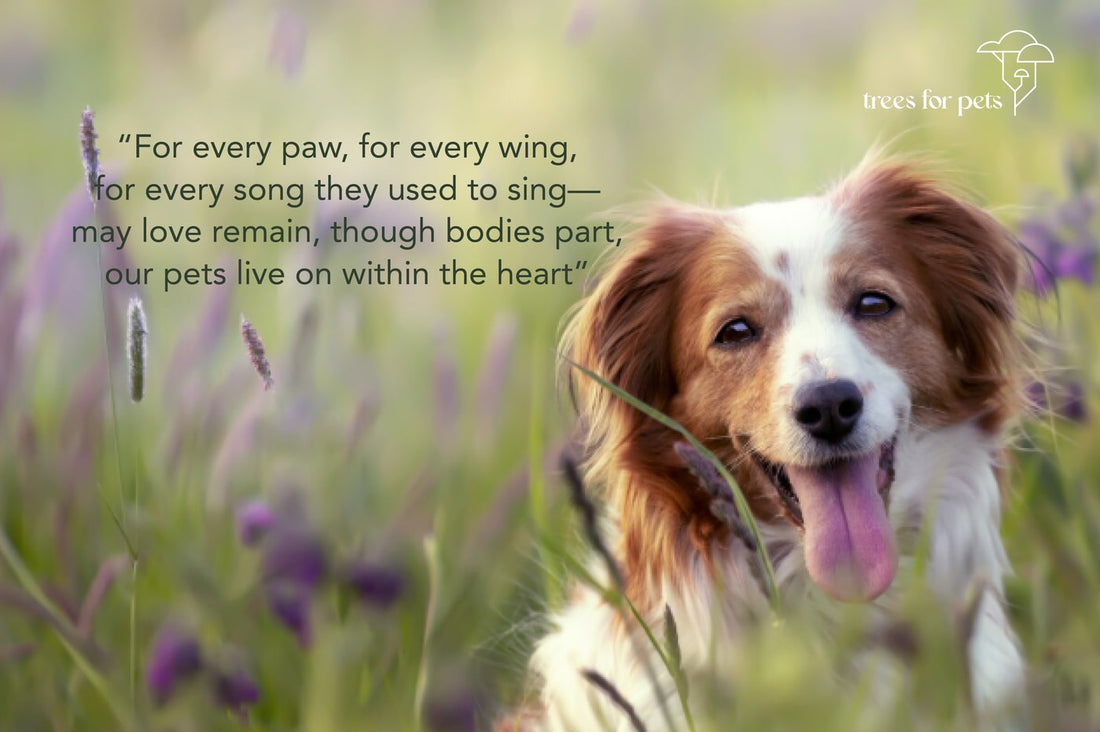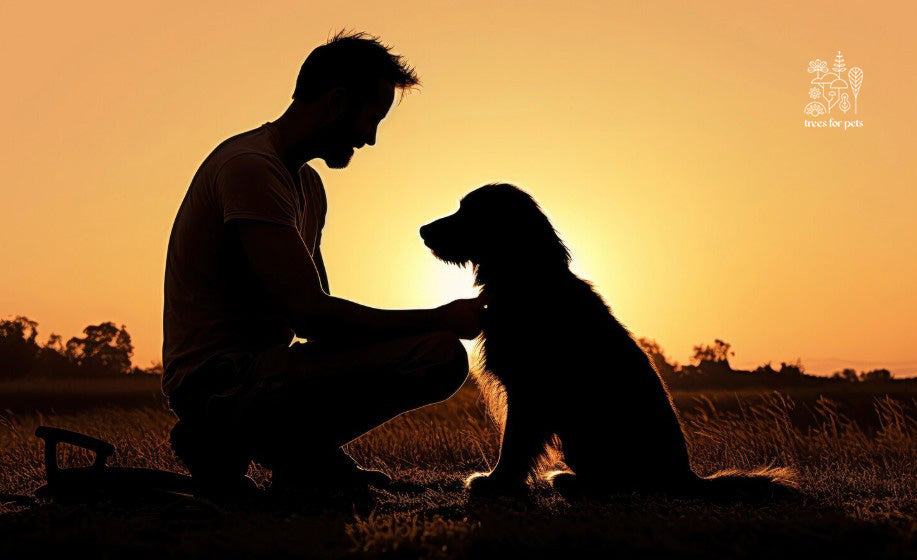Here's what no one tells you about losing a pet: the pet grief is real. Bone-deep, breath-stealing, world-tilting real.
And yet, somehow, we're expected to bounce back quickly. "It was just a pet," they say. As if love has categories. As if the being who greeted you every single day for years, who knew your moods better than most humans, who offered unconditional presence through your worst moments—as if that love doesn't count.
It counts. Your grief counts. And anyone who suggests otherwise simply doesn't understand what you've lost.
The Grief No One Prepared You For
Pet grief hits differently because pets love differently. They don't hold grudges. They don't judge your bad hair days or your failures. They simply show up, every single day, with the kind of loyalty humans spend lifetimes trying to learn.
When that presence disappears, it leaves a silence so profound it echoes.
You might find yourself:
- Setting out two bowls by habit, then remembering
- Listening for paws on hardwood that will never come
- Feeling guilty for every time you were too busy for a walk
- Wondering if you made the right choice in those final moments
- Feeling isolated because "it's just grief over a pet"
This isn't a weakness. This is love with nowhere to go.
Why Pet Grief Is Different (And Harder)
Here's the uncomfortable truth: society gives you three days bereavement leave for a parent, but expects you back to normal immediately after losing your dog.
The isolation is real. While humans gather around human loss with casseroles and condolences, pet loss often happens in silence. You're expected to function normally while grieving a family member.
The guilt runs deeper. With pets, you made the life-and-death decisions. You chose when to say goodbye. That responsibility—even when it's the most loving act possible—can feel crushing.
The relationship was pure. Your pet didn't love you despite your flaws. They loved you, period. Losing that kind of uncomplicated love leaves a particular kind of emptiness.
What Healing Actually Looks Like
Forget the timeline everyone expects. Healing from pet loss isn't about "getting over it"—it's about learning to carry love differently.
Permission to Grieve Fully
Stop apologising for your tears. Stop minimising your loss. Your pet grief is proportional to your love, and that love was real and profound.
Cry in the pet food aisle. Take a mental health day. Talk about them to anyone who'll listen. Keep their collar visible if it brings comfort. These aren't signs of being "stuck"—they're signs of having loved well.
The Daily Reality Check
Some days you'll feel okay. Others, you'll be blindsided by grief over something small—their empty bed, their favourite toy, the way sunlight hits the spot where they used to sleep.
This isn't moving backward. This is how love works when the beloved is gone.
What helps:
- Routine (when you can manage it)
- Movement (walks help, even without your companion)
- Connection (find people who understand)
- Purpose (their love taught you something—what?)
What doesn't help:
- Rushing the process
- Comparing your grief to others'
- Avoiding all reminders
- Pretending it doesn't hurt
Creating Memorials That Matter
The right pet memorial doesn't just honour your pet—it helps you process the love you shared and transforms grief into something generative.
Traditional memorials preserve: Photo albums, custom portraits, donation boxes, keepsake jewelry.

Living memorials grow: Memorial trees that flourish over time, creating spaces for reflection and ongoing connection. Every season brings new growth, just like grief slowly transforms into gratitude.
When you plant a memory tree in your pet's memory, you're not just marking their absence—you're nurturing something that will outlive you both. The tree becomes a place to sit, to remember, to feel connected to the love you shared.
It's grief transformed into growth. Pain becomes purpose.
Supporting Others (Because Most People Get It Wrong)
When someone loses a pet, skip the platitudes. Their pain doesn't need your solutions.
Say this: "I'm sorry. [Pet's name] was clearly loved." Then listen.
Not this: "At least they lived a good life" or "You can get another one" or "Everything happens for a reason."
Understand this: Their grief timeline isn't yours to judge. Six months later, they might still cry. That's not pathological—that's love.
Offer this: Practical help. A meal. A listening ear. A text that says "Thinking of you and [pet's name] today."
Here are 10 things you should (and shouldn't) say for the loss of a pet
The Question Everyone Asks: "When Should I Get Another Pet?"
Here's the honest answer: when pet grief stops driving the decision.
If you're looking for a replacement, you're not ready. If you're excited about loving again—differently, not as a substitute—that's readiness.
Some people are ready in weeks. Others need years. Both are normal. Your previous pet didn't love you so you'd never love again—they loved you so you'd know how.

Finding Meaning in the Mess
Grief has no deadline, but it does have direction. Eventually, most people find ways to transform their loss into something generative:
- Advocacy: Supporting animal welfare because you know how much pets matter
- Service: Volunteering at shelters, fostering, helping other pet owners
- Legacy: Creating environmental memorials that contribute to the world your pet loved exploring
- Wisdom: Teaching others about the human-animal bond, the reality of pet grief, the importance of end-of-life planning
Your pet's death can become a teacher—about love, loss, what matters, how to be present.
The Love That Doesn't Die
Here's what grief teaches us: love doesn't end when breathing stops.
The loyalty your pet showed you? It's now part of how you show up for others. The joy they found in simple moments? It's now your reminder to notice sunbeams and fresh air. The comfort they offered during your hard times? It's now your capacity to sit with others in their pain.
They're gone, but their love lives on in how you move through the world.
The pain you feel is love with nowhere to go. Eventually, you'll learn to carry it differently—not as a burden, but as a gift. Not as something to get over, but as something to grow from.
Moving Forward (Not Moving On)
You don't get over losing a pet. You grow around the loss. The grief becomes part of you, but so does the love.
Some days will still be hard. Anniversaries might always ache. Seeing their favourite spots might always trigger tears. This doesn't mean you're not healing—it means you loved deeply and purely.
Your pet's greatest gift wasn't just their presence—it was teaching you how to love without conditions, find joy in simple moments, and be present for what matters.
The world needs more of that love. Your grief is the price of having received it. Your healing is learning to give it away.
Ready to create something beautiful from your loss? Explore pet memorial gifts that grow as living tributes to love that never dies. Because the best memorials don't just mark what's gone—they nurture what remains.

